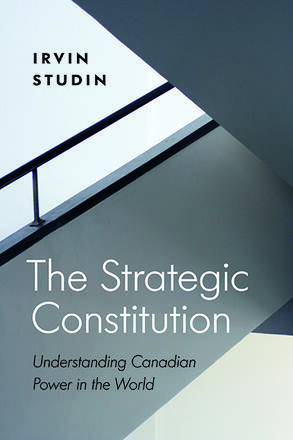
The Strategic Constitution
Understanding Canadian Power in the World
Ushers in a brand new school of constitutional scholarship in Canada.
La description
Historically, Canada’s Constitution has been principally viewed as a federal framework or a rights bulwark. Its framers did not intend for Canada to be a major player in the world and worldly matters were barely mentioned in constitutional documents. This book offers a brand new interpretation. The Strategic Constitution, as proposed by Irvin Studin, is a framework for understanding Canada’s capacity to project strategic power in the world. Studin begins by reducing the Constitution to its strategically relevant essentials or building blocks. He then provides a wide-ranging audit of the Constitution of Canada in terms of its treatment of so-called factors of strategic power: the military, diplomacy, executive potency, natural resources, the economy, strategic communications and transportation, and the national population. He later applies the Strategic Constitution framework to four policy case studies: Canadian regional leadership in the Americas; full war (as in Afghanistan); Arctic sovereignty; and national security and counterterrorism. Provocative and well-argued, this book makes the case for the Constitution being a highly flexible national framework that quietly harbours seeds of national strategic potency. By bridging the solitudes of constitutional law and international relations, it also creates a new paradigm for constitutional scholarship in Canada.